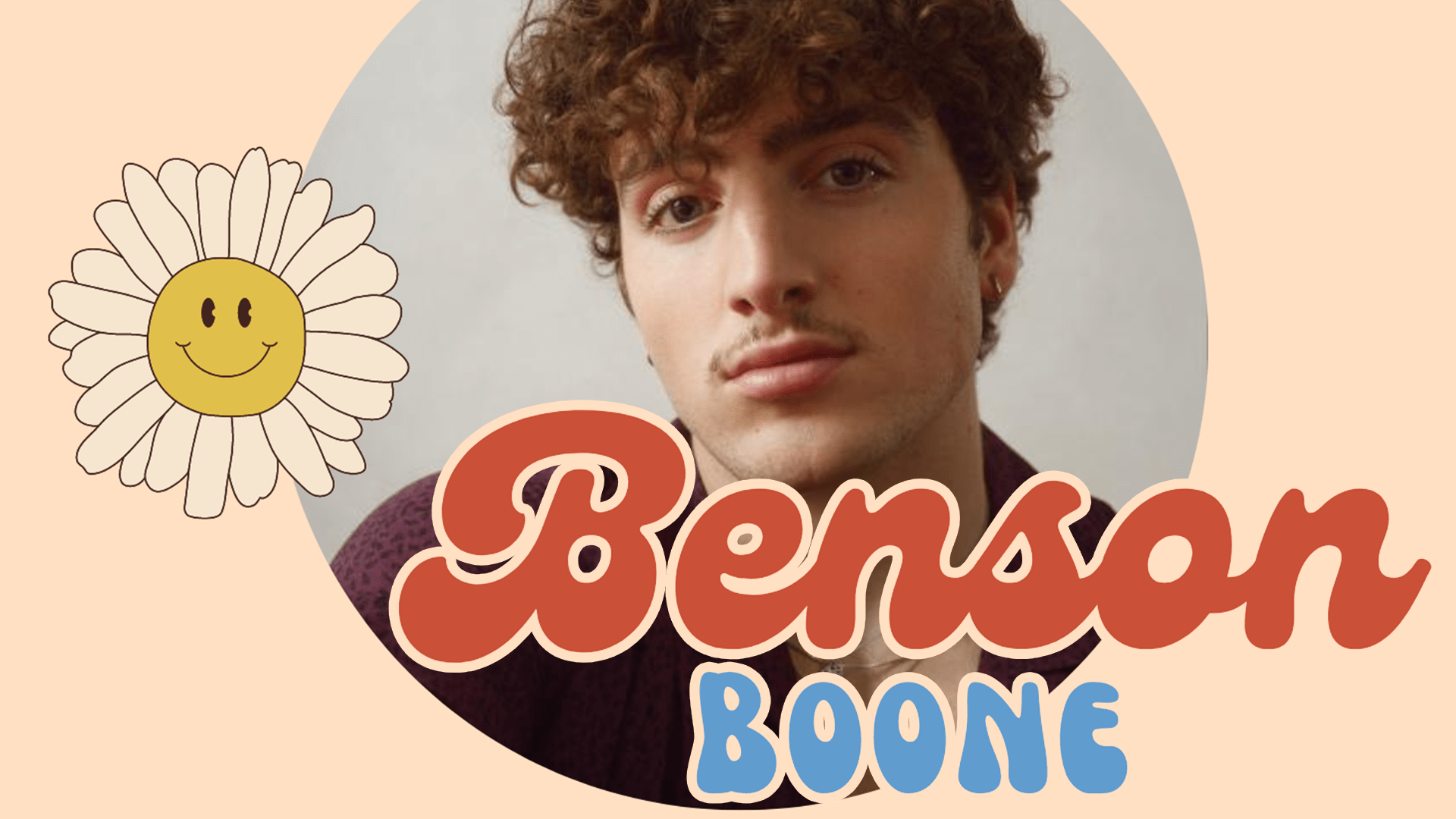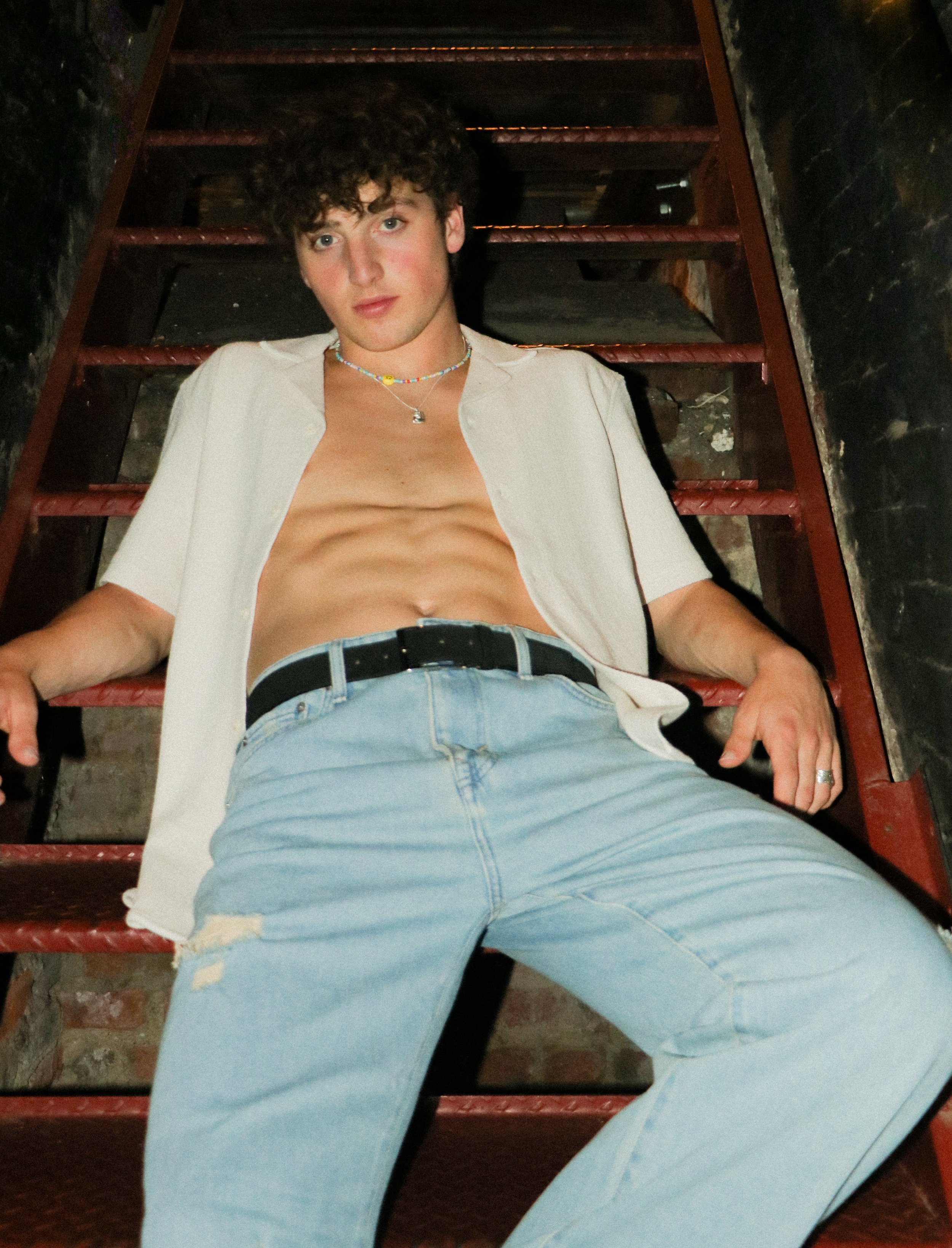Let's get real for a second here folks. We’ve all seen those sketchy headlines floating around the internet that promise something scandalous, like “Benson Boone Nude Photos Leaked!” But hold up, let’s pump the brakes and take a deep breath. What’s really going on here? Is this legit or just another clickbait scheme designed to get your attention? We’re diving deep into the world of misinformation, privacy, and digital ethics to uncover the truth behind these sensational claims.
In this digital age, where information spreads faster than wildfire, it's crucial to separate fact from fiction. The internet loves drama, and names like Benson Boone often become the center of attention, especially when they're tied to controversial topics. But before we jump to conclusions, let’s explore what’s real and what’s just noise.
Whether you’re a fan of Benson Boone or just curious about the buzz, this article aims to set the record straight. We’ll cover everything from the origins of these rumors to the importance of respecting privacy in the digital world. So, buckle up, and let’s dive into the juicy details!
Read also:Arigameplays Video Leaks The Untold Story You Need To Know
Who Is Benson Boone? A Quick Bio
Before we tackle the main topic, it’s essential to know who Benson Boone is. He’s not just another random name thrown into the mix; he’s an up-and-coming talent with a growing fanbase. Here’s a quick rundown:
Benson Boone, born on April 25, 1996, in Houston, Texas, is an American singer-songwriter and social media personality. Gaining fame through platforms like TikTok, he quickly became a household name with his unique blend of pop and R&B music. His catchy tunes and charismatic personality have earned him millions of followers across multiple platforms.
Benson Boone: Key Facts
Let’s break it down with some quick facts:
- Born: April 25, 1996
- Place of Birth: Houston, Texas
- Occupation: Singer-Songwriter, Social Media Personality
- Claim to Fame: Viral TikTok Hits and Original Music
What’s the Deal with Benson Boone Nude?
Now, onto the elephant in the room—those so-called “Benson Boone nude” claims. Here’s the thing: in most cases, these headlines are pure clickbait designed to lure unsuspecting internet users into clicking on malicious links or fake news sites. The internet is notorious for spreading rumors, especially when it comes to celebrities or influencers.
Let’s face it, people love a good scandal. It’s human nature to be curious, but we need to be smarter about the content we consume. These types of headlines often lead to dead ends, phishing scams, or even malware downloads. Always double-check your sources before falling for the hype.
Why Do These Rumors Spread?
Rumors like these spread like wildfire for a few reasons:
Read also:5 17 Leaks The Untold Story You Need To Know Right Now
- Social Media Algorithms: Platforms like Twitter and Reddit often amplify sensational content, making it more visible to users.
- Human Curiosity: Let’s be honest, we’re all guilty of clicking on something we probably shouldn’t.
- Profit Motive: Many websites and social media accounts profit from clickbait by generating ad revenue through high traffic.
Is There Any Truth to the Claims?
Here’s the million-dollar question: is there any truth to the “Benson Boone nude” claims? Spoiler alert: probably not. In most cases, these types of rumors are completely baseless. Celebrities and influencers are often targeted by trolls and scammers looking to generate buzz and clicks.
It’s important to remember that celebrities are human too, and they deserve the same level of privacy and respect as anyone else. Just because someone is in the public eye doesn’t mean they’ve forfeited their right to privacy.
How to Spot Fake News
So, how can you tell if a headline is legit or just another scam? Here are a few tips:
- Check the Source: Is the website reputable? If it’s a random blog or forum, it’s probably not trustworthy.
- Look for Evidence: Real news outlets will provide credible sources and evidence to back up their claims.
- Use Common Sense: If it sounds too good (or scandalous) to be true, it probably is.
Respecting Privacy in the Digital Age
In today’s digital world, privacy is more important than ever. With the rise of social media and online platforms, it’s easier than ever to invade someone’s personal space. But just because we can, doesn’t mean we should.
Celebrities and influencers are no exception. They may choose to share certain aspects of their lives with the public, but that doesn’t give us the right to invade their privacy or spread false information about them. Respecting boundaries is key to maintaining a healthy online community.
The Impact of Privacy Violations
Privacy violations can have serious consequences, both for the individuals involved and for society as a whole. Here are a few examples:
- Emotional Distress: Victims of privacy violations often experience anxiety, depression, and other mental health issues.
- Reputation Damage: False information can ruin someone’s reputation, even if it’s eventually proven to be untrue.
- Legal Ramifications: In some cases, spreading false information can lead to legal action against the perpetrators.
The Role of Social Media Platforms
Social media platforms play a crucial role in regulating the spread of misinformation. While they can’t control every post or comment, they do have tools in place to flag and remove content that violates their terms of service. However, it’s up to us as users to report suspicious activity and be vigilant about the content we consume.
Many platforms, including TikTok, Instagram, and Twitter, have implemented policies to combat the spread of fake news and privacy violations. But these policies are only effective if users take responsibility for their actions and report violations when they see them.
How to Report Misinformation
Here’s how you can help:
- TikTok: Tap the three-dot menu on a post and select “Report.” Choose the appropriate reason for your report.
- Instagram: Tap the three-dot menu on a post or comment and select “Report.” Follow the prompts to provide more details.
- Twitter: Click the three-dot menu on a tweet and select “Report Tweet.” Choose the appropriate category for your report.
Why This Matters: The Bigger Picture
At its core, this isn’t just about Benson Boone or any other celebrity. It’s about the culture of misinformation and the impact it has on our society. When we fall for clickbait headlines or spread false information, we contribute to a cycle of negativity and distrust.
By being more discerning about the content we consume and the information we share, we can help create a healthier, more positive online environment. It’s not just about protecting celebrities—it’s about protecting ourselves and our communities.
Building a Better Internet
Here are a few ways we can all contribute to a better online experience:
- Educate Yourself: Learn how to spot fake news and misinformation.
- Verify Sources: Always double-check information before sharing it.
- Be Respectful: Treat others online with the same respect you would in person.
Conclusion: Think Before You Click
In conclusion, the so-called “Benson Boone nude” scandal is likely just another example of clickbait designed to generate traffic and ad revenue. While it’s tempting to click on sensational headlines, it’s important to remember that not everything we read online is true. By being more discerning about the content we consume and the information we share, we can help create a healthier, more positive online environment.
So, the next time you see a headline that seems too good (or scandalous) to be true, take a moment to pause and think. Is this really something I need to know, or is it just another attempt to grab my attention? Let’s work together to build a better internet—one click at a time.
Call to Action
What do you think about the role of clickbait in today’s digital world? Leave a comment below and let us know your thoughts. And don’t forget to share this article with your friends and family to help spread the word about the importance of digital literacy!
Table of Contents


